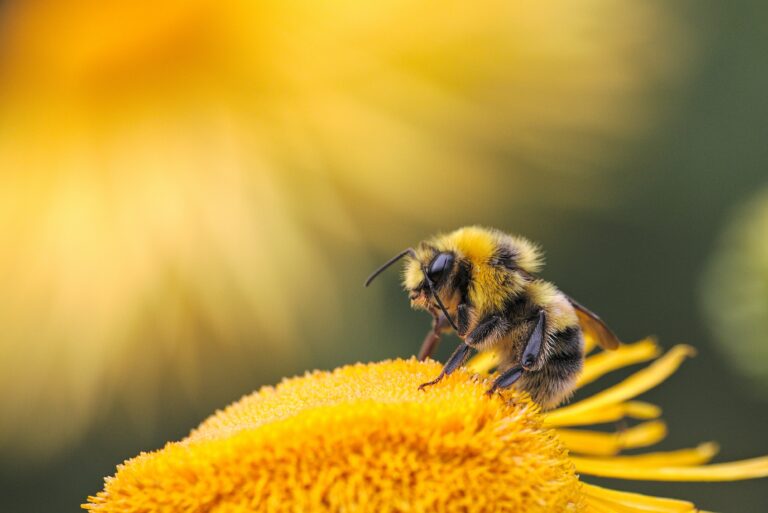Project Description
This project connects a vast spectrum of biological organisation, spanning the ecological and evolutionary synergies among microbes, animal pollinators and plants. Traditionally, research on the rich biological interface between pollinators and plants (Ballantyne et al., 2015) has revealed their key role in generating and maintaining terrestrial biodiversity and complex ecological interactions, which is crucial for biodiversity conservation, food security, and ecosystem sustainability. This project aims to expand the frontiers of the well-established field of plant-pollinator networks by incorporating an underexplored factor that potentially shapes interactions between plants and pollinators: the microbial community. Microbes (fungi, bacteria and viruses) living within flowers are hypothesized to affect pollination at multiple stages. In particular, at the pre-pollination stage, microbes residing on the surface (exophytes) or within the internal organs (endophytes) of the flowers are expected to influence the attraction of specific pollinators with olfactory and/or visual cues, impacting strongly on the plant-pollinator network (Cullen et al., 2021). However, focused research programmes aiming at addressing these predictions remain largely scarce, especially in biomes with high endemic biodiversity.
The plant-pollinator network, defined by the range of interactions in an ecosystem, has been poorly described due to the complexity of the system and associated processes. Nonetheless, knowledge of specialist (restricted pollinator diversity) and generalist (large pollinator diversity) plant-pollinator links is available. The student will first characterize the structure of plant-pollinator network in an ecosystem of specific importance for its expected high level of specialisation (e.g. Páramo in Colombia), for its high floral diversity (e.g. Southern Alps in France/Italy), or for its land-use protection (e.g. Cairngorms in Scotland). The entire floral microbiome (both endophyte and exophyte communities) will be isolated from the most significant plants in the ecosystem and analysed bioinformatically to determine differences in microbial structure and functionality between plants with a strong specialism and generalism phenotype. Finally, the student will determine the chemical influence of the floral microbiome for pollinator attractiveness (Raguso, 2008), by isolating key volatiles from members of the plant community and testing their attractiveness using the field olfactometer bioassay approach.
As part of this innovative project, the student will join a network of academic collaborators from the UK, USA and Colombia. The supervisory and project team will provide support and training in microbiology, bioinformatics, plant and insect ecology, chemistry and evolutionary biology. The project will use multidisciplinary approaches including bioinformatics analyses and empirical work (lab-based and fieldwork) to explain how microbial communities affect the plant-pollinator network. There will be ample opportunity for the student to develop their own project directions in line with the overall project objectives.
The student will join a cohort of PhD students interested in environmental management, biodiversity and earth systems science, and will collaborate with a broad network of end-users and stakeholders. An excellent scientific environment will be provided, with training on several state-of-the-art technological facilities, including cutting-edge molecular and environmental facilities. The student will therefore benefit from excellence in environmental science research with specific knowledge on research impact and policies critical for achieving Sustainable Development Goals, while gaining a diverse range of transferable and generic skills to ensure their competitive future career paths.
For all informal inquiries, please contact Cecile Gubry-Rangin (c.rangin@abdn.ac.uk).
CANDIDATE BACKGROUND
Essential: Strong interest in ecological and evolutionary principles, and plant/pollinator interaction in general
Desirable: plant, insect and/or microbiome expertise
Photo by Dmitry Grigoriev on Unsplash
Supervisors
Cécile Gubry-RanginPrimary Supervisor: | Profile: Cécile Gubry-Rangin Email: c.rangin@abdn.ac.uk Institution: University of Aberdeen Department/School: School of Biological Sciences |
Daniel Pincheira-DonosoSecondary Supervisor: | Profile: Daniel Pincheira-Donoso Email: D.Pincheira-Donoso@qub.ac.uk Institution: Queen's University, Belfast Department/School: School of Biological Sciences |
Fabio ManfrediniAdditional Supervisor: | Profile: Fabio Manfredini Email: fabio.manfredini@abdn.ac.uk Institution: University of Aberdeen Department/School: School of Biological Sciences |
Additional Supervisor: | Prof. Tia-Lynn Ashman, University of Pittsburgh, USA Email: tia1@pitt.edu
Prof. Rob Raguso, Cornell University, USA Email: rar229@cornell.edu |
References
Ballantyne, G., Baldock, K.C.R., Willmer, P.G. Constructing more informative plant–pollinator networks: visitation and pollen deposition networks in a heathland plant community. Proceedings of the Royal Society B. 282: 20151130 (2015).
Cullen, N.P., Fetters, A.M., Ashman, T.-L., Integrating microbes into pollination, Current Opinion in Insect Science 44: 48-54 (2021).
Raguso, R.A. Wake Up and Smell the Roses: The Ecology and Evolution of Floral Scent. Annual Review of Ecology, Evolution, and Systematics 39:549-569 (2008).
QUADRAT Themes
- biodiversity
- environmental-management






















































